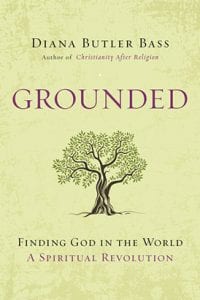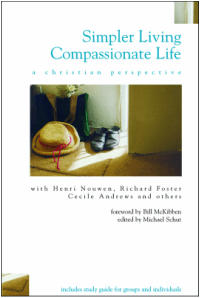
Cover image courtesy of dianabutlerbass.com
Acclaimed public theologian, Diana Butler Bass’s 2015 book Grounded explores the connection of contemporary spirituality and nature. In opposition to many voices within the church who run in fear from the changing American spiritual landscape, Bass sees an invitation to participate in a spiritual revolution. Throughout the book, Bass deconstructs a vertical theology in which the divine is above and separate from humanity and the Earth and turns instead to an understanding of the divine’s immanence. She also recognizes the need for something stable in an age of change. She turns to the presence of the divine in dirt, water, and sky to find her own ground.
Bass recounts her conversation with a man who was a writer and farmer whose own experiences in close encounter with the ground had led him to a profound spirituality. In the chapter on water, Bass looks at current events and argues that water is vital to a flourishing spirituality. Bass gracefully reconciles the big bang theory with the book of Genesis in her chapter on sky. For the second half of the book, Bass considers more specific structures of human experience, finding the presence of the divine in roots, home, neighborhood, commons, and revelation.
This book is a bridge from a disconnected church and culture to an Earth created in beauty. Bass’s utilization of memoir contextualizes her theological analysis making it remarkably accessible. For those questioning where to turn in an unstable spiritual time, Bass offers a hopeful perspective that uplifts a twenty-first century faith firmly rooted in human experience of the natural world. The ecumenical approach found in this book makes it a wonderful choice for book groups across Christian denominations.
To be directed to Diana Butler Bass’s website click here.
Grounded and Bass’s other works can be found on ebook or in print through Amazon, other major booksellers, and your favorite independent bookstore.





